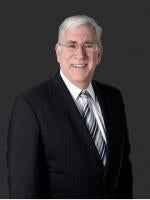Many employers and attorneys assume that covenants not to compete found in employment agreements are not enforceable against California residents absent narrow exceptions, and that courts would reject any attempt to apply another state’s choice of law provision to draft around this issue. A recent case from the Delaware Chancery Court, NuVasive, Inc. v. Patrick Miles, 2018 WL 4677607 (Del. Ch. Sept. 28, 2018), has recognized, however, that under certain circumstances, non-competes and non-California choice of law and forum provisions may be enforced against California residents.
Background
As California law generally prohibits non-competition agreements, some California employers have drafted agreements to include choice of law and forum provisions friendly to covenants not to compete. Over 20 years ago, however, in Application Group, Inc. v. Hunter Group, Inc., 61 Cal. App.4th 881, 902 (1st Dist. 1998), a California appellate court found such choice of law provisions were unenforceable. In the ensuing decades, employers wrestled with how to enforce non-competes against California employees, and some included forum selection clauses with non-California choice of law provisions. Some were successful, while others were not.
In light of this uncertainty, and to protect its residents’ rights to employment, California subsequently amended the California Labor Code, effective Jan. 1, 2017, to add Section 925. This amendment generally prohibits employers from even attempting to use choice of law and forum provisions to circumvent the protections of California labor law, and Business & Professions Code Section 16600.
Section 925 provides:
(a) An employer shall not require an employee who primarily resides and works in California, as a condition of employment, to agree to a provision that would do either of the following:
(1) Require the employee to adjudicate outside of California a claim arising in California.
(2) Deprive the employee of the substantive protection of California law with respect to a controversy arising in California.
(b) Any provision of a contract that violates subdivision (a) is voidable by the employee, and if a provision is rendered void at the request of the employee, the matter shall be adjudicated in California and California law shall govern the dispute.
(c) In addition to injunctive relief and any other remedies available, a court may award an employee who is enforcing his or her rights under this section reasonable attorney's fees.
(d) For purposes of this section, adjudication includes litigation and arbitration.
(e) This section shall not apply to a contract with an employee who is in fact individually represented by legal counsel in negotiating the terms of an agreement to designate either the venue or forum in which a controversy arising from the employment contract may be adjudicated or the choice of law to be applied.
(f) This section shall apply to a contract entered into, modified, or extended on or after January 1, 2017.
Section 925 played a leading role in the Delaware Court of Chancery’s decision in NuVasive.
The Facts in NuVasive
The employer plaintiff, NuVasive, Inc. (NuVasive), was a Delaware corporation doing business in California. The defendant-employee, Patrick Miles, was a high-ranking, fifteen-year employee of NuVasive. Throughout his employment with NuVasive, Miles lived and worked in California. He served as NuVasive’s president and chief operating officer, and later became vice chairman of the NuVasive Board of Directors. As part of this new role, Miles signed an employment agreement in September 2016. The agreement included a covenant not to compete, under which Miles agreed not to “provide any services to any business operating in any line or type of business conducted by NuVasive or its subsidiaries” for one year following termination of his employment.
The parties negotiated the employment agreement in California. The parties understood that the agreement would be performed in California. Nevertheless, the agreement contained a Delaware choice of law and forum provision. Miles was represented by counsel in the negotiation of the agreement, and the Court assumed that the attorney reviewed and negotiated these forum selection and choice of law provisions. This choice of law was important because, contrary to California law, Delaware enforces reasonable covenants not to compete, and professes a strong public policy in favor of freedom of contract.
Miles resigned from NuVasive on Oct. 1, 2017. The following day, he joined another California corporation and purported competitor as its executive chairman of the board and principal executive officer. Shortly thereafter, NuVasive sued Miles in Delaware, under Delaware law, for breach of the covenant not to compete. Miles moved for partial summary judgment.
The Court Determines That, Under Section 925, Freedom of Contract Trumps Freedom of Employment Where the Parties Have Legal Representation
For purposes of its analysis, the Court assumed that Miles breached the covenant not to compete when he left NuVasive and accepted employment with a competitor. The Court further assumed that, absent the Delaware choice of law provision, California law would govern this dispute. Therefore, the Court was left with what it characterized as a stark issue: “If the choice of law provision is enforced, the parties will successfully have contracted around California law, and NuVasive may proceed with this litigation to attempt to hold Miles to his bargain. If California law is applied, the non-compete provision was illusory, and Miles is free to accept employment with a NuVasive competitor.”
California’s amendments to the Labor Code adding Section 925 became effective after Miles signed the agreement. However, the Court found that it nevertheless represents California’s fundamental public policy as it currently exists, which the Court must consider. The Court focused on the carve-out it found in Section 925(e), which exempts California’s prohibition on choice of law and forum selection clauses where the employee is in fact individually represented by legal counsel in negotiating the agreement.
According to the Court, Section 925 recognizes the limited subset of cases where the inequality of the parties’ bargaining strength is “buffered” by an employee who is represented by independent counsel, and where counsel participates in the negotiation of the agreement containing the forum selection and choice of law provisions. In those cases, the Court concluded, California’s interest in freedom of contract outweighs its interest in freedom of employment.
The Court Determines That Settled Choice of Law Provisions Do Not Dictate a Different Result
Given the Court’s conclusion that Section 925’s effective date did not preclude the Court from considering its impact on California’s public policy, the Court next analyzed whether the Restatement (Second) of Conflicts would call for a different result. First, the Court confirmed that California law would apply to the agreement, absent the choice of law provision. Next, and most critically, it determined that enforcement of the covenant not to compete would not violate a fundamental policy of California under these circumstances. The Court found that Section 925(e) applied here and articulated the California legislature’s policy decision that when contracting parties’ rights are protected by representation, freedom of contract trumps California’s prohibition of non-compete agreements. Finally, the Court concluded that since the choice of Delaware law would not violate California’s fundamental policy, it need not balance the competing interests of the states. The Court did note, however, that it could not say that California’s apparent weak interest in prohibiting covenants not to compete that fall under the Section 925(e) carve-out demonstrated a “materially greater interest” than Delaware’s fundamental but general interest in freedom of contract. The Court therefore held that Delaware law applied, and denied Miles’ summary judgment motion. As Miles apparently argued only that the non-compete was void under California law, the Court assumed (but did not explicitly determine) that the non-compete provision was enforceable under Delaware law.
Takeaway
While employers may not rely upon standard form non-competition agreements distributed to all employees, non-California employers should be mindful of Section 925’s carve-out, where the employee occupies a high-level position within the organization and is represented by counsel when negotiating an employment agreement. Although the California courts and legislature have not yet clarified this issue, there is now persuasive authority that, in these limited situations, a very significant workaround to California’s rule against non-competes may exist. Out of an abundance of caution, employers may wish to memorialize on the face of the agreement that the employee had legal representation (including the attorney’s name), and that the parties freely negotiated the entire agreement, including non-California choice of law and forum selection clauses, and the employee’s consent to jurisdiction and venue in the chosen state. Further, while not explicit in the decision, the fact that NuVasive was a Delaware corporation was critical to the Court’s Restatement analysis; accordingly, if employers select a non-California choice of law and forum, this should be based on that state’s connection to the business (including state of incorporation or principal place of business), the employee’s activities in that state, or other relevant factors. Finally, as the NuVasive Court applied Section 925’s carve-out retroactively to a contract entered before that provision’s effective date, practitioners and employers may consider relying upon this case to enforce non-California choice of law and venue provisions in pre-2017 non-competes where the employee was represented by counsel.




 />i
/>i

